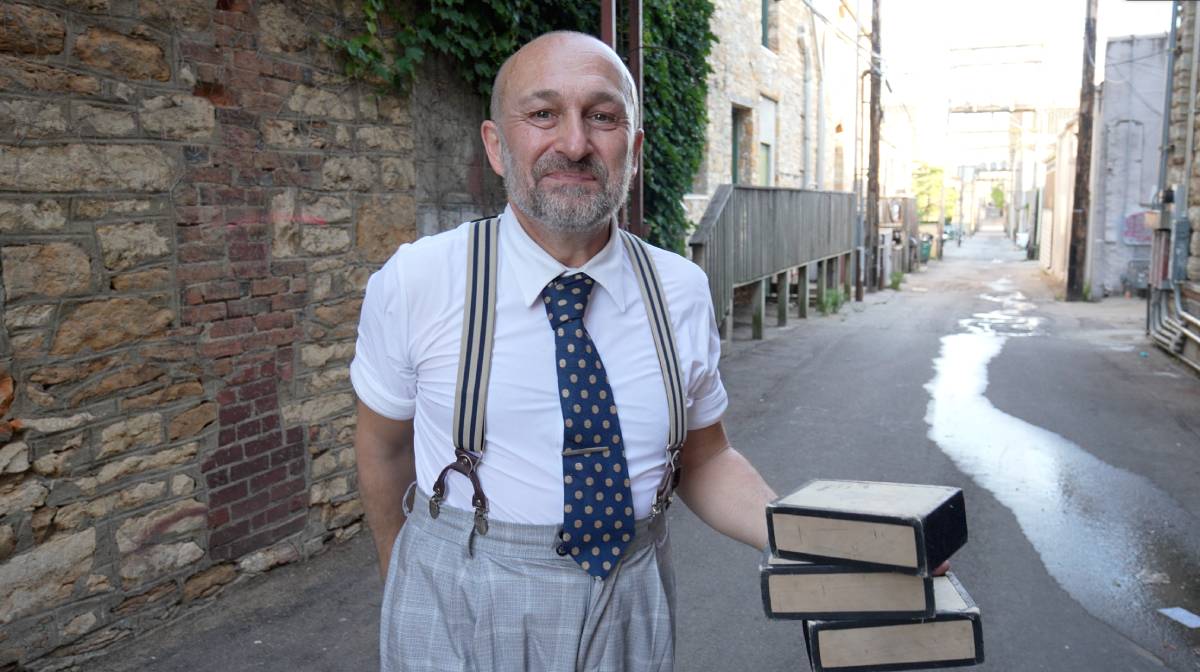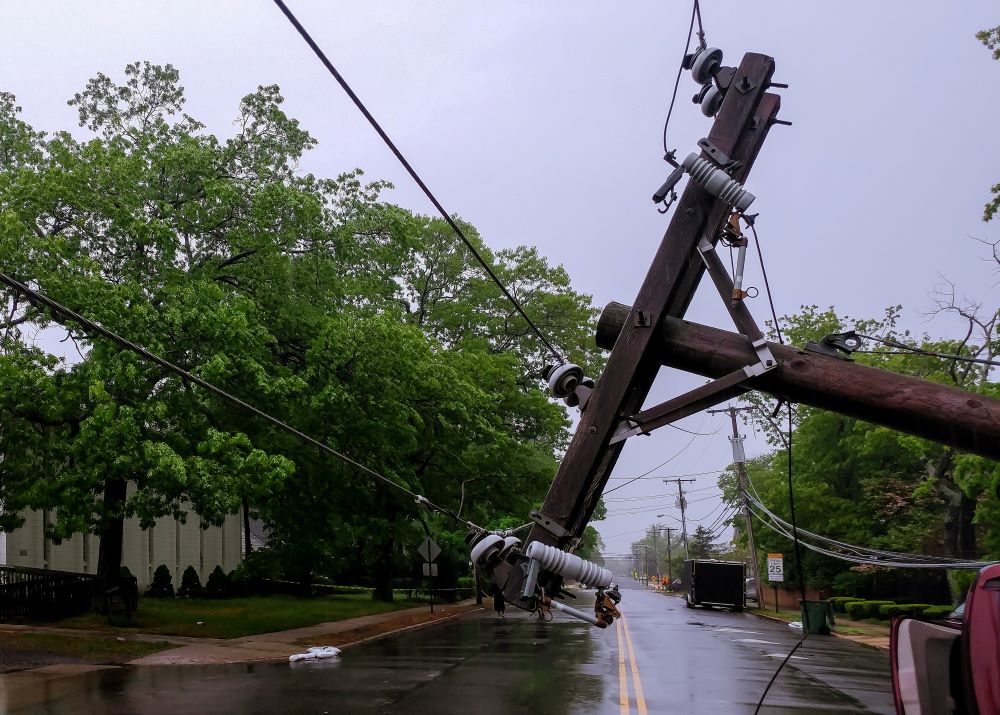
Being a street performer, or busker, was a lifelong dream for Mat Ricardo, known as The Extraordinary Gentleman. By any measure, Ricardo has successfully fulfilled that dream as his juggling act has taken him around the world to perform. In addition, he has written a book with a second on the way, speaks at events, and hosts a podcast. He has been lauded by Broadway Baby as “a man who is most comfortable doing the seemingly impossible in front of an enraptured audience.”
But like any person at the top of their game will tell you, success doesn’t always come easy. In Ricardo’s case, it’s the culmination of years and years of practice and determination to climb to the top despite the obstacles that stood in his way.
The Reality of Practice
Since his first day of performing on the street – a day he made negative money because someone stole the cash he had used to “seed” his hat – Ricardo has been all in on building a career on his creative performances. Creating an act and a name for himself as The Gentleman Juggler took years of hard work.
“People talk about the joy of learning something new. What they don’t talk about is how soul destroying and boring the art of practice is. That is what my upcoming book is about. That’s why most people can’t juggle or play the piano because everyone starts out not being able to play the piano or juggle. And when you try and you can’t, it’s awful. And you feel like a loser, you feel like a failure. And that feeling is often usually strong enough to make you not try again.
“It’s a great thing that juggling teaches you. Every juggler drops, the greatest jugglers in the world still drop. The point is to pick it up. The point is every time you drop, that’s a learning process. Why did you drop? What can you do to fix it? The process of practice is incredibly boring and much longer than anyone thinks. The finale of my show took me six months between having the idea and the first time it worked and then years in between the first time it worked and it works every time. And you need it to work every time – years.”
Playing or working?
So much of what Ricardo does has taken a lot of hard work to perfect, but to most people it looks like play. Ricardo says it’s hard to define the line between art and work.
“Is it work or play?” Ricardo asks. “I find it so hard to answer it without being super political because art is only work when you have to start charging money for it. Play becomes work when capitalism gets in the way. Something that street performing has taught me is to not focus on the money because in its basic sense, when I’m doing the street show, the main thing I’m there to do is to give everyone a good time, just to create a vibe where everyone forgets about their real lives and the things that we are all stressed and scared and depressed about. Just shuttle that out and do something silly and fun. If I’m doing that, but also focusing on, ‘oh, but I want to make at least this much money,’ that’s no fun, that’s not the job anymore. That’s a different job, but I’m not interested in that one. But if you do that well, if you create that nice way, make everyone forget their problems, then they will give you some money because people value that.”
Ricardo uses his podcast “Imagination & Junk” to explore the nature of creativity and art and to acknowledge the hard work that goes into creating it.
“The sort of tagline for my podcast is ‘it’s about the hard work of creativity.’ It’s about how to be creative, how to make things, but it’s also not kind of sugarcoating. All artists are not these ethereal beings that just kind of hang around drinking cocktails and having wonderful ideas. No, it’s work, but it’s beautiful, meaningful, profound work. I make things in a lot of different media, a lot of different art forms: I write, I perform anywhere that I can, I have a YouTube channel, I’ve written a book, I’m writing another one. All these things help me to stay emotionally healthy. I’m a broken cookie, and I don’t do well if I have nothing to do. I’m very lucky that my version of “busy” is artistic. And the more I do it, the more it reminds me that I’m an artist.”
Ricardo reminding himself he’s an artist may seem unnecessary. After all, he has toured with his own one-man show and is a sought-after performer for events, but street performers often hear people knocking their profession.
“People often look down on street performing,” Ricardo says. “More than one person has said to me ‘be a professional.’ A stand-up comedian said that to me last month when they found out that I did street performing. They said, ‘Oh, it’s just clever begging.’ And I did very well to not smack him. Some people think that to a degree. So, the more art that I do in all areas, the more I can successfully think of myself as an artist and keep being an artist.”
Using multiple art forms also gives Ricardo the freedom to express his ideas in the format that works best.
“The great thing is I can have an idea and then think, what would that suit best? Quite often I want to talk about something. So, is that a piece of writing? Is it a YouTube video? And that’s a nice position to be in, to be vaguely competent in enough art forms to be able to choose which one you use to say something. I like that. And that’s only happened fairly recently. It was only since the pandemic. I started seriously making YouTube videos and more seriously pursuing writing because my life’s work was taken away.”
Surviving the ups and downs
The COVID-19 pandemic brought Ricardo’s act to a screaming halt. Live performers’ livelihoods dried up overnight, leading many like Ricardo to seek out new opportunities.
But even when the world is running like it should, street performers can see tough times. Success at a street festival is heavily dependent on the weather. Even the most prominent festivals can’t control Mother Nature, which means a profitable weekend can easily disappear if rain blows in.
“This is the nature of street performing,” Ricardo says. “You learn very quickly to not stress about the things you can’t control. And weather is the number one thing. I can spend literally a whole day on planes to get here, arrive here feeling really bummed out and tired and get myself together and if it rains, it’s like that was all for nothing. But you can’t feel depressed about that. Not my fault. It’s not your fault.”
The popularity of street performing does come and go in waves, though.
“Street performing is one of those things, like all art forms that have their cycles, they have heydays and reset times,” Ricardo says. “I started in the late ’80s. By the early ’90s it was seen in Britain, certainly, as quite cool. There were a lot of people in that time that I shared a pitch with that went on to huge, famous success in other areas. There was Luke Creswell’s group, and he went off to create Stomp. There were all these people that found this little community of performers.
“It felt kind of special and cool and of the moment. It goes in ebbs and flows in terms of the quality of the art form because you get generations of performers whose only sort of education in how to be a street performer is watching other street performers, and that’s how you get a stale act. What you want to do is look at all the other art forms and bring those art forms into what you do, but then those performers kind of mature a bit and start to do that. And so that kind of ebbs and flows.
“And then because of the nature of the economics of it, it’s very reactive to the sort of geopolitical world, apart from the obvious one, which is a few years ago when the pandemic hit, and you just couldn’t gather in crowds anymore and everyone had no work for a year or so.”
Surprisingly, dips in the economy like the recession in 2008 didn’t affect street performers as much as other forms of entertainment.
“In the 2008 recession when no one had any money, it didn’t hit street performers so hard because street performing is cheap to watch. Without wishing to get too political, it’s a very socialist art form because in street performing, there’s no barrier to entry, there’s no ticket price. If I have 500 people watching me and half of them walk away, half of them don’t bother to pay, but the other half give me between one and five bucks each. That’s great. I’m making a very good amount of money there. But they’re not paying much. They’re paying a buck for 45 minutes of entertainment, so it is value for money.”
Being open about mental health
Ricardo enjoys entertaining people, but it’s not always easy. Diagnoses of autism, depression, anxiety, and other mental health challenges can make some of the daily tasks we take for granted harder than performing in front of a packed audience.
“It’s hard that I am autistic,” Ricardo says. “I have epilepsy; I have mental illness. I struggle a lot for someone that makes a living out of doing things that people think are impossible or at least very unlikely. I struggle very much with most of the things that the people watching this will find very easy. For me being on stage, that’s the easiest thing. That’s when I know what I’m doing. Going downstairs here and having to talk to a stranger to get a coffee, it was terrifying.”
Ricardo’s autism diagnosis is recent, and he’s still learning what that means for him. What he does know is that kindness to others goes a long way toward making the world a place where everyone feels comfortable.
“I was diagnosed with autism less than a year ago, and that’s quite rare. Most people who are autistic get their diagnosis in childhood and yeah, it was quite a lot to deal with. It answered a lot of questions, but it also made me kind of have to reframe how I feel about and what I think about all of my life, everything I’ve done up until this point with a new knowledge of how my brain works. So, I’m just starting that journey.
“I have autism, I have epilepsy, I have a smorgasbord of mental illness. I have anxiety and depression and OCD, and I’m not saying that so people think I’m special, or I know some people might think it’s some sort of weird attention-seeking. I don’t need to seek attention that way. I do a show, I get my attention needs met. But I think a lot of people, probably most people, have things like this, and on one hand, we’ll just get on with it anyway. On the other hand, it’s probably really healthy for us to understand that we’re all fighting our own battles and to try to understand each other. And if you can’t, then maybe kindness is good.”
Creativity is for everyone
No matter the challenges you face, Ricardo believes that a little bit of creativity is good for anyone, whether you ever master a creative medium or not.
“Society gets in the way. Everyone has the capacity to be an artist. Everyone’s got a soul and a brain. I can’t make things. I play piano really badly. I cannot stress this enough – badly – but I enjoy it. I can plinky plank out some bad jazz, bad, it’s so bad, but I enjoy it. Would I like to be better? Yes. Have I got a piano? No. But the creation of art is a separate thing from how successful the end product is. A book is not defined, quality of writing is not defined by how many people bought the book. And that’s the thing that street performing teaches you.”

